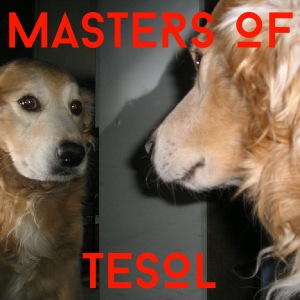MOT
22 – Online Learning Past and Future – Stafford Lumsden
{bleep bloop bleep} I booted up cyborg teacher Stafford Lumsden to talk about online learning and the changing perception of what exactly a classroom is. We are more connected than ever and this shift in technology is changing the options that students have and how we teach. We discuss….
- distance learning
- e-learning vs online learning
- Is online education as ‘good’ as offline?
- Basics of having a repository
- LMS – Learning Management System – create assignments, give feedback, students upload and interact with each other and the instructor
- The pros and cons of a fully online classroom
- No one-size-fits-all with online teaching
Useful resources:
Google – heard of it? add dot com. It’s quite good.
Google Sites – make your own web pages
classroom.google.com – education specific ‘classrooms’. Students can submit and track assignments. Teachers can receive and give feedback on assignments all within the Google eco-system.
wix.com – make your own web pages
moodle.org – open source LMS. Requires some computer savvy to use
Blackboard.com – pricy. Would require financial support from your department
21.5 – Thinking Skills – VIDEO!
I am branching out into video.
Please watch, subscribe, like and all those things that everyone on YouTube is begging you to do! This is the first step of an expansion of MOT with the aim of eventually making materials for you to use in your own classes.
Please smash “subscribe”, pummel “like” and all that other YouTube stuff.
First Video – https://youtu.be/FWE2JPBf-PI
Channel – http://www.youtube.com/channel/UCKbariMdEytYHdmkpXiILnQ/
Keywords: Bloom, Thinking Skills, Bloom’s Taxonomy, ESL, EFL, TESOL, TEFL, CELTA, DELTA, linguistics, language, second language, teaching, learning, English, bilingual, multilingual, cognition,
19 – Reflective Practice – Thomas Farrell
The self-styled ‘bad boy’ of language teaching, Thomas Farrell, dropped by my office to take about self reflection. What do we do in the classroom and, importantly, WHY do we do it? Who are YOU as a teacher and what do YOU bring into the classroom?
Start adding this reflective practice regularly to your professional life and you’ll be surprised at the difference it can make to your personal and professional development.
Also a good lesson about having a safety net. I recorded this with my fancy MICs but the recordings failed for some reason, so this is based on my phone back-up recording. Phew….
16 – Eytan Zweig – what words really mean – semantics and pragmatics
Plurals are easy, right? There’s one or there’s more than one… pretty straight forward. “All”, “every”, “All the” “each” – that’s pretty simple too, isn’t it? Well, hold on to something sturdy as Eytan Zweig gets you to think a little deeper about how we both form and understand language.
The literal meaning (semantics) and the meaning of the use (pragmatics) of the language is a vital part of how we communicate in real life. So, let’s a show like this is chomping at the bit to dig down into this topic.
Keywords: ESL, EFL, TESOL, TEFL, CELTA, DELTA, pragmatics, semantics, linguistics, language, second language, teaching, learning, English, Israeli, Hebrew, bilingual, mulitlingual, York, University of York, UK, England, cognition, Eytan Zweig,
13 – What the way you speak says about you – Sociolinguistics with Andrew Euan MacFarlane

This episode, we start with a little experiment and get more interactive. Let us know what country you thought the music originated in at @MOTcast with the hashtag #motesol . I’ll put up the results on www.mastersoftesol.com
Andrew Ewan MacFarlane is a lecturer at University of York in the Department of Language and Linguistic Science and a sociolinguist. We spent a while flipping back and forth between accents and dialects, reminiscing about Margaret Thatcher, thinking about unobtrusive kiwis and kangaroos, gettin’ daaaan wit da yoof o’ London innit, and playing “Name That [Country of Origin] Tune”.
This was one of my favourite interviews so far and hopefully inspires more than a few listeners to get deeper into the subject.
Footnotes:
Margaret Thatcher’s voice – before and after
MOT on Instagram
12 – Babies and First Language Acquisition – Tamar Keren-Portnoy pt1
Now on Instagram!
Once again, I got lost in the labyrinthian corridors of the University of York Language & Linguistic Science department, this time to speak to Tamar Keren-Portnoy about first language acquisition. There’s a lot of similarities between how we learn our first language and how we acquire our second language, so it’s a useful topic for ESL / EFL / second language teachers.
She gives us insights into such things as how babies develop syntax/grammar norms, why they learn some words earlier than others, how babies are not simply mimicking their caretakers and, through her own research with Rory DePaolis & Marilyn Vihman, how babies learn through listening and the sounds they themselves make.
You may remember Marilyn Vihman from episode 9 of MOT.
Later in the year, I’ll release a mini-episode about the developmental stages of babies.
Links:
Marilyn Vihman Interview on MOT
“Travel Broadens the Mind” – Campos et al (2000)
Key words: baby, babies, acquisition, teaching, learning, babbling, language, babbling, cooing,
11 – Too old to learn? The Critical Period – Heather Marsden

This episode, I speak to University of York’s Heather Marsden about the controversial Critical Period hypothesis. This theory suggests that there is a limited age at which we can learn a second language, after which it grows increasingly difficult. Anecdotally, we assume this to be true – kids are sponges for language while older people struggle – but what does the research say about this?
This episode is simply a bite-sized introduction to a much larger topic, so I encourage you to search around for other perspectives on this subject.
Heather Marsden @ University of York
Follow me on @MOTcast
Now on Instagram!
Noob glossary:
L1 – first/native language
L2 – second language
input – any exposure to the L2
interference – where the L1 grammar, vocab or pronunciation affects or negatively influences L2 production
10 – how fair is your English test? – QUICKIE
Subscribe on iTunes
I’m alive! Back after five months with a quickie that (hopefully) gives us a foundation for a deeper look at this topic later this year with a real expert.
We’re looking at TESTING & EVALUATION – The main priciples in this episode:
- Practicality
- Reliability
- Validity
- Authenticity
- Washback
Lots of info comes from this excellent book:
Language Assessment: Principles and Classroom Practices – Brown & Abeywickrama
09 – Bilingual Mythbusting – Marilyn Vihman
Subscribe on iTunes
Follow me on Twitter – @MOTcast
To a monolingual, being bilingual or multilingual seems magical. More than one language in one head – no one can live at that speed! As a result, some unusual misconceptions have grown around linguistic phenomena that, globally, is far more common than speaking a single language.
Marilyin Vihman has significant experience in bilingualism both personally and academically. In this episode, recorded in her office at the University of York, we look at some of the myths about bilingual development and which are outright wrong and which lean closer to the truth than others.
The myths we bust – or, in some cases, bruise – are:
- Bilinguals are two monolinguals in one head
- Bilinguals start to speak later than monolinguals
- Babies soak up languages like sponges
- Some languages are more primitive than others, so are easier to learn
- English is widely spoken (as a second language) because it has less grammar
- Parents pass on mistakes and non-native accents to their children
- There’s one right way to raise a bilingual child
(Adapted from Pearson (2008))
Marilyn Vihman at University of York



